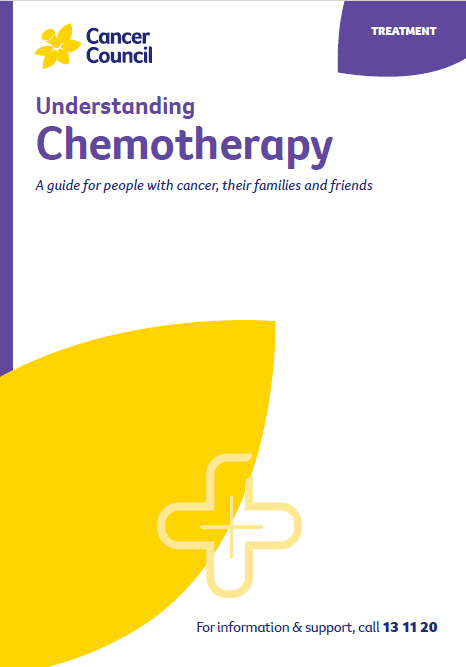- Home
- About Cancer
- Cancer treatment
- Chemotherapy
- Common questions about chemotherapy
- Your health care team
Your health care team
Before, during and after treatment, you will see a range of health professionals who specialise in different aspects of your care.
Learn more about:
Overview
The main specialist doctor you will see when having chemotherapy is a medical oncologist (for tumours, also called solid cancers) or a haematologist (for blood cancers). You may be referred to a medical oncologist or a haematologist by your general practitioner (GP) or by another specialist such as a surgeon.
Treatment options will often be discussed with other health professionals at what is known as a multidisciplinary team (MDT) meeting.
It is also a good idea to build a relationship with a GP because they will be part of your care, particularly after your cancer treatment ends.
To find cancer specialists, multidisciplinary teams and hospitals in NSW or ACT, you can visit the NSW Government website CanRefer.
Health professionals you may see
| GP | assists you with treatment decisions and works in partnership with your specialists in providing ongoing care | ||
| medical oncologist or haematologist | treats cancer with drug therapies such as chemotherapy, targeted therapy and immunotherapy (systemic treatment) | ||
| radiation oncologist | treats cancer by prescribing and overseeing a course of radiation therapy | ||
| surgeon | surgically removes tumours and performs some biopsies; specialist cancer surgeons are called surgical oncologists | ||
| cancer care coordinator | coordinates your care, liaises with other members of the MDT, and supports you and your family throughout treatment; may also be a clinical nurse consultant (CNC) or clinical nurse specialist (CNS) | ||
| nurse or nurse practitioner | administers medicines and drug therapies, including chemotherapy, targeted therapy and immunotherapy, and provides care, information and support throughout your treatment; a nurse practitioner works in an advanced nursing role and may prescribe some medicines and tests | ||
| palliative care specialist and nurses | work closely with the GP and cancer team to help control symptoms and maintain quality of life | ||
| dietitian | helps with nutrition concerns and recommends changes to diet during treatment and recovery | ||
| social worker | links you to support services and helps you with emotional, practical and financial issues | ||
| occupational therapist, physiotherapist | assist with physical and practical problems, including restoring movement and mobility after treatment, and recommending aids and equipment | ||
| psychologist, counsellor | help you manage your emotional response to diagnosis and treatment |
→ READ MORE: Having chemotherapy
Podcast: Making Treatment Decisions
Listen to more episodes from our podcast for people affected by cancer
More resources
A/Prof Kate Mahon, Director of Medical Oncology, Chris O’Brien Lifehouse, NSW; Katherine Bell, Dietetics Department, Liverpool Hospital, NSW; Brigitta Leben, Dietetics Department, Liverpool Hospital, NSW; Sophie Michele, 13 11 20 Consultant, Cancer Council SA; Dr Jess Smith, Medical Oncologist, Macquarie University Hospital, NSW; Karene Stewart, Consumer; Julie Teraci, Clinical Nurse Consultant, Skin Cancer and Melanoma, Cancer Network WA.
View the Cancer Council NSW editorial policy.
View all publications or call 13 11 20 for free printed copies.

